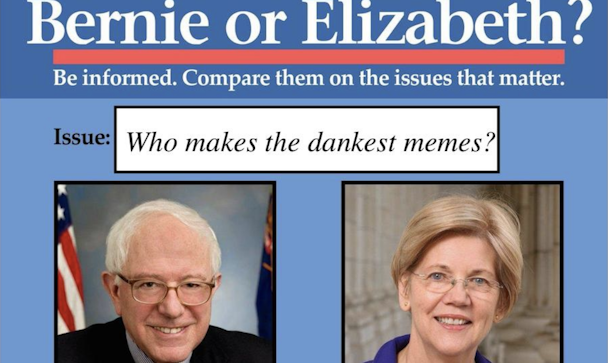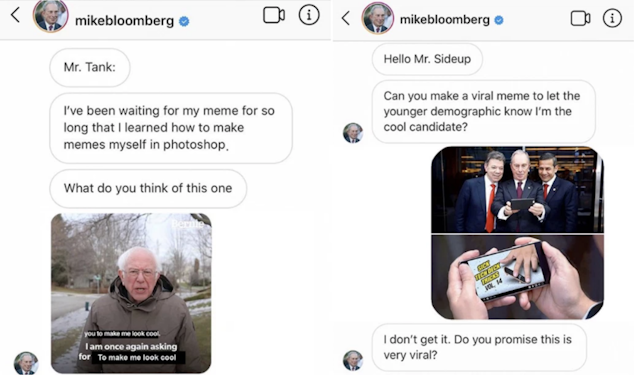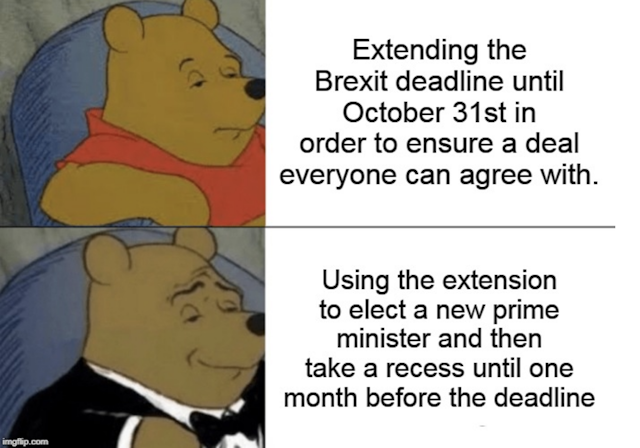Of mice and memes: the dark side of political ‘hot takes’
The year is 2020. A world in chaos, yet optimistic about the future. Somewhere, paths to the presidency are paved by an “effective meme strategy.”

Unfortunately, this is not the opener to a rebooted House of Cards or season fifteen of The Crown. Exhibit A? An unusual volley of Michael Bloomberg-sponsored Instagram posts flooding timelines over the weekend; the latest front in a “wildly expensive” presidential advertising campaign. How I wish I was making this up.

To try and make sense of this, let’s go back to the basics. What, truly, is the modern meme? Bear with this worthwhile (if inane) question, as these are abstract and often confusing beasts; part pop culture, part shareable self-affirmation, all feeding into an ever-evolving zeitgeist. And to ask this is OK. In an era of unpredictability there is no shame in trying to better understand something so familiar, yet so of-the-moment.
When it comes to political advertising though ‘what?’ is really just one of many questions we must be asking; for the global rise in propagandistic memes is difficult to police and - ultimately - dangerous. Think fake news but Spongebob Squarepants, or Darude - Sandstorm. Once again I’m being serious.

That pop-cultural epithets can influence politics is undoubted - the 2016 US election an obvious example. That many of these are genuinely quite funny is also not in question - as Australian outlets Brown Cardigan or The Betoota Advocate regularly demonstrate. And when it comes to those actually in the spotlight, such can be the immense grumble of the internet that you would indeed be hard-pressed to deny the conventional wisdom that politicians do not, in fact, want to become memes. Or to be memed (however it is said). ‘Why would anyone eat a raw onion for the whole of Instagram to see?’, you might very reasonably ask.
However, the real headline here is that the reverse may in fact be occurring. That in elections across the globe made-for-Instagram moments seem - increasingly - to abound as much by design as by misfortune.

So political memes exist. Great. The biggest question should be provenance. The Bloomberg campaign got this somewhat right by declaring their ‘hot takes’ as #sponsoredposts. Transparency is to be applauded regardless of a candidate's policies and such disclosure might even win a vote or two - in this case through cannily self-aware ‘Billionaire-on-Facebook’ posturing and slide-into-the-DMs style riffs. But strategies like these also seem just as designed to generate headlines (like a vaunted New York Times article) than actual voter engagement. Earned media, as they say.
For now, the actual “effectiveness” of this particular “meme strategy” seems unlikely. “Thanks, I hate it”, replied Grizzly Bear’s Ed Droste almost immediately under one of the finely-crafted Bloomberg Instagram posts. “You can’t buy my vote ”, clapped back another commentator alongside the instantly-iconic “thanks for ruining the memesphere”.
But the danger is not really in this campaign, and it is not one of bad content littering our newsfeeds. It is of the murky origins of soundbites that do not declare their cause. Of the foreign actors and party members alike spreading political takedowns disguised as Spongebob Squarepants valentines day cards or woke reaction gifs.
It’s a wild world out there and to that sort of behaviour we must say thank u, next.
Tim sharp is regional head of integrated strategy, design and creative at GrowthOps.
